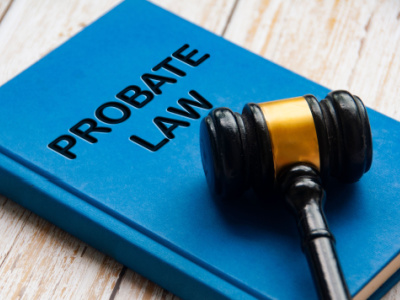How Do Non-Probate Assets Affect Estate Administration?

When someone passes away, their assets are typically distributed through a legal process known as probate. During this process, the representative of the estate will identify and determine the value of the deceased person’s assets, pay taxes, address any outstanding debts, and distribute the person’s assets to their heirs or beneficiaries.
However, not all assets go through the traditional probate process. Some assets are considered non-probate assets because they have designated beneficiaries or joint owners who automatically receive ownership rights upon the owner’s death. These non-probate assets can significantly impact how an estate is administered, and they must be properly understood and accounted for as family members settle issues related to a loved one’s death. An experienced attorney can help families understand how non-probate assets may be used in estate planning, and they can also help ensure that all issues related to probate and estate administration will be handled correctly.
Types of Non-Probate Assets
There are several types of non-probate assets that may bypass the probate process, including:
- Jointly owned property: When property such as real estate is owned by multiple people with rights of survivorship, ownership automatically transfers to the surviving owners upon one owner’s death. For example, when two spouses own a home together, the surviving spouse will typically be able to assume full ownership of the property after the other spouse’s death.
- Payable-on-death accounts: Certain financial accounts allow account holders to designate specific beneficiaries who will inherit the account funds upon their death. This can ensure that the funds in an account can be transferred to the new owner(s) without the need to account for these assets during the probate process.
- Beneficiary designations: Some financial instruments like life insurance policies or retirement accounts allow owners to name specific beneficiaries who will receive proceeds directly without going through probate. Named beneficiaries will usually be able to receive these funds or assets quickly and easily after the death of the original owner.
- Trusts: These instruments allow assets to be held and managed by a trustee, with specific instructions for when and how they will be distributed to beneficiaries. Assets held in trusts can be distributed while avoiding probate entirely.
Treatment of Non-Probate Assets
Unlike probate assets, which are controlled by the deceased person’s will and subject to court supervision, non-probate assets will typically be transferred directly to their designated beneficiaries outside of probate. This means that they may not be subject to some of the same legal requirements as probate assets.
For example, because non-probate assets bypass the court process, they are generally not included in the calculation of estate taxes or subjected to creditor claims against the estate. However, it is crucial to note that certain exceptions and limitations may apply depending on local laws and specific circumstances.
Coordinating Non-Probate Assets With Estate Administration
To properly administer an estate containing both probate and non-probate assets, it is essential for executors or personal representatives to identify all relevant assets and ensure that they are handled correctly. This process may involve reviewing documents such as account statements, property deeds, life insurance policies, retirement account beneficiary designations, and trust documents.
Once non-probate assets have been identified, proper coordination must occur between those responsible for overseeing the administration of each asset category. This coordination ensures that all necessary steps are taken – including transferring ownership rights or distributing funds – while following all applicable state laws and any instructions provided by the deceased person.
Contact Our DuPage County Estate Administration Attorney
Properly accounting for non-probate assets throughout the estate administration process minimizes confusion among beneficiaries, reduces potential disputes, and allows for a smoother distribution of property upon completion of the estate administration process. If you need assistance with administering an estate involving non-probate assets, or if you have questions about how these types of assets may impact your role as an executor or personal representative, contact a skilled Naperville probate and estate administration lawyer today. At the Gierach Law Firm, we can help you navigate this intricate process while ensuring that you meet all legal requirements. Contact us at 630-756-1160 to set up a consultation.
Practice Areas
Archive
+2016
+2013
Please note: These blogs have been created over a period of time and laws and information can change. For the most current information on a topic you are interested in please seek proper legal counsel.














